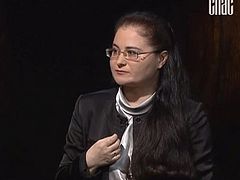I have just finished reading a wonderful book by the late scholar Louis Feldman (d. 2017) entitled Jew and Gentile in the Ancient World: Attitudes and Interactions from Alexander to Justinian. In it, he mentions the patristic attempts to convince the Jews of the truth of Christianity by citing examples of Old Testament prophecy fulfilled in Jesus, and he remarks that Jews in those days could hardly have found such Christian arguments convincing. In some ways I take his point. Even to my Gentile Christian ears some of their arguments sound forced, such as St. Justin Martyr’s suggestion that the figure of the cross can be found in the physical physiognomy of the human nose (Apology, ch. 55). But I still think that the patristic arguments were not completely unsound, even if the Fathers did over-stretch their arguments somewhat in their zeal to convert their Jewish neighbours to the Christian Faith. Accordingly I would like to revisit the whole project and suggest reasons why devout Jews should become devout Christians.
I am not unaware of how unpopular such a project can be today. The unpopularity of the attempt to convince Jews of the truth of Christianity goes back a long way. In the prehistoric days of my youth, the Anglican Book of Common Prayer contained a collect or prayer for use on Good Friday for the conversion of the Jews which read, “O merciful God, who hast made all men, and hatest nothing that thou hast made, nor wouldest the death of a sinner, but rather that he should be converted and live: Have mercy upon the Jews, thine ancient people, and upon all who reject and deny thy Son; take from them all ignorance, hardness of heart, and contempt of thy word, and so fetch them home, blessed Lord to thy fold, that they may be made one flock under one shepherd, Jesus Christ our Lord”. It hardly needs stating that this prayer could not stand the scrutiny of later political correctness, and so was omitted from later editions of the Prayer Book. Our Jewish neighbours objected to the Christian conviction that they should convert to Christianity, and so a later generation of Christians obligingly expunged the collect from their Good Friday liturgy.
I quite understand how our Jewish neighbours find offensive the suggestion that they should abandon Rabbinic Judaism for Christianity. In the same way, I suppose, our Muslim neighbours find offensive the suggestion that they should similarly abandon Islam. But if Christians regard their religion as true, the notion that all men should become Christians seems an inevitable corollary. Every person thinks his own religion is true and therefore that everyone else should embrace it. This does not make him a bigot or triumphalistic, but simply consistent. If he did not regard his own religion as true, no doubt he would find another religion.
For Christians the issue Jewish evangelism is complicated by the long history of anti-Semitism, especially in Europe. One thinks of the European ghettoes and of the Nazi Holocaust. We naturally view our relationship with our Jewish neighbours through the lens of the past European history in general and the Holocaust in particular, and read patristic comments—and sometimes New Testament verses—in light of this history of inequality and oppression. But this is a mistake.
In the New Testament, there was indeed an inequality between Christians and Jews, but it was the Christians who were at the distinct disadvantage. Leaving aside the crucifixion of Jesus, Jewish-Christian relations began with the persecution of Christians by the Jewish majority, culminating in the martyrdom of Stephen. In the decades and even centuries following, the Christians continued to be the persecuted minority, and the Jews continued to function in the role of either the persecutors or of collaborators with the persecutors, such as in the case of the martyrdom of St. Polycarp in the mid-second century. Throughout the early church and even into the Constantinian period, the Jewish communities in the Roman world were large, rich, powerful, and influential, while the Christian communities during the same period were small and comparatively powerless. The patristic denunciations of the Jews need to be read against this political and cultural background. It was the Christians who were in the ghettoes and under threat, not the Jews. The shrillness of the Christian characterization of Judaism arises at least in part from this inequality of power.
One also needs to recognize that the Christians were then reacting to an extreme and (to their mind) blasphemous Jewish rejection of Jesus. The Jews denounced Jesus as a deceiver and a blasphemer, and even today the Talmud contains sections of extraordinary vituperation in which Jesus is portrayed as sunk in hell and set ablaze in fiery excrement. The Toldoth Yeshu or “Story of Jesus”, tells the tale of Jesus from the Jewish perspective in lurid detail, and includes the assertion that Jesus was the bastard son of Mary and a Roman centurion named Pandira. It was not uncommon for Jews to add the words “May his name perish!” upon hearing the name of Jesus mentioned.
It is good that today we have largely left behind such polemics, but we must remember that in the past Christian denunciation of Judaism was matched by Jewish denunciation of Christianity. Our modern horror and rejection of anti-Semitism—godly and necessary as this rejection is—must not be allowed to distort our reading of history or make us think that the patristic opposition to Judaism shared the same root as modern anti-Semitism. One can and should reject such anti-Semitism as hateful and demonic, and still recognize that patristic polemic against Judaism was not necessarily anti-Semitic in our modern sense. In fact the Fathers tried to convert the Jews to Christianity for the same reason that the Jews tried to convert them to Judaism—because both thought that their religion was true.
For many Jews today all Christian evangelism aimed specifically at Jews is intrinsically and inescapably anti-Semitic. Certain Christian Jews—such as the so-called “Messianic Jews” or those of the “Jews for Jesus” movement—portray Jewish conversion to Christianity not so much an act of conversion as completion, a movement in which Judaism is not renounced but fulfilled. They often refer to themselves not as “converted Jews”, but as “completed Jews”. It is fair to say that such distinction and nuance are not well-received by their target audience. For many in this target audience, Jewish identity is paramount, and Christian beliefs such as the belief that Jesus is the Messiah, threaten that identity and are therefore emphatically rejected.
I suggest that such a rejection is incompatible with the Jewish inheritance found in the Hebrew Scriptures. For the prophets, it was following the will of God that was paramount, not ethnic identity. This prophetic preference for truth over national identity was summed up by John the Baptizer when he said to the Pharisees, “Do not suppose that you can say to yourselves, ‘We have Abraham for our father’, for I say to you that God is able from these stones to raise up children to Abraham” (Matthew 3:9). Israel’s national destiny was to follow their God wherever He led, even if following Him meant the sacrifice of national identity. To be a Jew was not merely an ethnic reality, but a spiritual one (Romans 2:28-29). Accordingly, I will offer an apologia for the Christian faith in the spirit of the Fathers. St. Paul taught that the Gospel was the power of God for the salvation of all men, to the Jew first, and also to the Greek (Romans 1:16). With the deepest respect for my Jewish neighbour, I will make the Christian case for the Gospel and attempt to show how Judaism finds its fulfillment in Jesus the Messiah.





So if I were to read the Scriptures in Hebrew (and Mottel is correct about this), then when I read "my salvation", I would literally be reading "my Jesus". Can they become part of the Orthodox Church and pray in Hebrew and retain their Jewish customs and calendar from 2000 years ago? Or do we make them Gentiles?